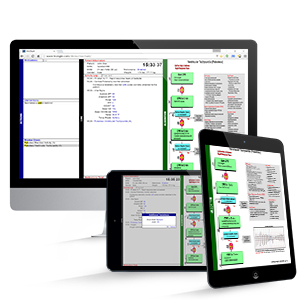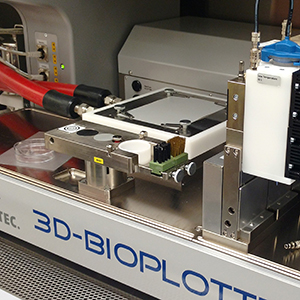OMAHA, Neb. (July 7, 2016)—A new agreement between UNeMed and Streck creates a research and development collaboration between the two largest biotechnology firms in the state, officials announced today.
UNeMed, the technology transfer and commercialization arm of UNMC, entered into a master collaboration agreement with Streck, an Omaha-based company that develops and manufactures diagnostic products for clinical and research laboratories. The master agreement provides the framework for a myriad of new and continued collaborations that could lead to new healthcare products.
“I really love it that we could set something like this up with Streck,” said UNeMed President and CEO Michael Dixon. “Streck is a Nebraska company that employs Nebraskans, and they are completely invested in boosting the local economy as much as we are. What better partner is there to help develop more biotechnology products? I can’t wait to see all the things that might grow out of this.”

Catherine Gebhart, PhD
For their first collaborative project, Streck will finance the work of UNMC researcher Catherine Gebhart, PhD, an assistant professor in the pathology and microbiology department. Dr. Gebhart also oversees the virology testing procedures for Nebraska Medicine’s organ transplant program.
“Streck has been following the work of Dr. Gebhart for years and she has always been a valued industry resource to us,” said Connie Ryan, Streck President and CEO. “We are honored to support her important work. Advances in testing–and ultimately, new developments in diagnostics and improvements in patient care–are in her most capable hands.”
In a two-year project, Dr. Gebhart will focus on developing a more powerful testing method for the human Herpes simplex virus.
Getting results from current Herpes testing methods can take more than three hours. Streck and Dr. Gebhart are looking to knock that down to less than 20 minutes using Streck’s patented technology. The Streck Zulu RT™ Thermal Cycler is a machine that dramatically improves efficiency by reducing the time-consuming process of amplifying small amounts of DNA into millions of copies.
Called a polymerase chain reaction, the process is a key step in the diagnostic process and can take hours using traditional means. Streck’s system can do it in less than 20 minutes.
The collaborative effort hopes to create a procedure that can make the Zulu RT system part of an efficient workflow for Herpes virus research applications; future use as a diagnostic tool in clinical settings, with FDA clearance, would likely follow.
UNMC and Streck are evaluating additional research projects for other collaborative opportunities.









